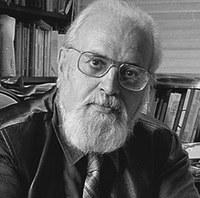São Paulo (Brazil), 1929 – 2003
By Flávio Aguiar
 A controversial poet and essayist, he deepened the writing techniques of the modernists of 1922, particularly those of Oswald de Andrade. He developed syntactical innovations anticipated in the poetry of Mário Faustino and rejected the confessional sentimentalism produced by the previous generation, the Generation of ’45, of which he highlighted poet João Cabral de Melo Neto as an exception. Together with Augusto de Campos and Décio Pignatari, he founded the Noigandres Group of Concrete Poetry in 1952.
A controversial poet and essayist, he deepened the writing techniques of the modernists of 1922, particularly those of Oswald de Andrade. He developed syntactical innovations anticipated in the poetry of Mário Faustino and rejected the confessional sentimentalism produced by the previous generation, the Generation of ’45, of which he highlighted poet João Cabral de Melo Neto as an exception. Together with Augusto de Campos and Décio Pignatari, he founded the Noigandres Group of Concrete Poetry in 1952.
In 1958, he published the Plano-piloto para poesia concreta, laying out the guidelines of the movement and emphasizing the visuality of written words and the specificity of poetic language. His literary production was marked by the search for new forms of structuring, whether in short object-poems or in long prose poems, also characterized by notable translations, such as that of Ecclesiastes. Vanguard generations were influenced by his aesthetic research, recognized in various movements of the 1960s, such as Tropicália, popularized by Caetano Veloso, and the Mimeograph Generation, which included Chacal.
He engaged in intense intellectual activity, serving as a professor and translator of several languages. In 1992, he received the Jabuti Prize for Literary Personality of the Year. Another work: Crisantempo: no espaço curvo nasce um (1998).



